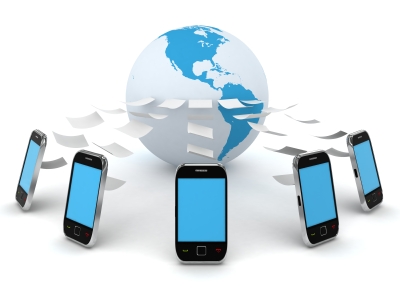Have you ever heard the phrase “there’s an app for that?” Well, soon in hospitals and general practices all around the country, it may become quite common. Apps made for the medical industry could revolutionize the way that health care is dispensed and the way that ailments and diseases are diagnosed. Unlike traditional medical journals and textbooks, apps are constantly updated with the latest news and information. Medicals professionals with smartphones or tablets can have virtually all of the tools they need at their fingertips.
Last July, the Food and Drug Administration (FDA) proposed guidelines that would create many new pre-approved apps for use in the medical field. For example, they proposed apps such as the National Institutes of Health’s LactMed app, which provides nursing mothers with important information about the effects of medicines on breast milk and nursing infants. There are multiple other mobile medical apps that can diagnose rashes, heart conditions and that allow doctors to view X-rays on their smartphones or tablets.
There are many advantages to using apps in the medical field such as:
- Improved access to services – Patients with limited access to medical facilities or those who are too far away to have the ability of regular doctor visits would be able to receive their health care services virtually. They could send their doctor photos or readings taken by a medical app and streamline the diagnosis process.
- Patient health management tools – With medical apps, patients can more easily manage their own health. Apps can indicate when a patient needs to take their pills, when they are low on pills and which nearest pharmacy they’ll be able to refill that prescription. Apps can also be used to monitor side effects and classify symptoms of many viruses and diseases, effectively making the diagnosis process a little easier.
Even with all of these benefits, there are some disadvantages to using medical apps. As Kenny Lin wrote in U.S. News & World Report, medical textbooks and journals go through vigorous peer review cycles and have a lot of oversight, while apps “vary in quality and don’t have to be vetted for accuracy or safety.” He points out an example where his colleague had a seemingly wonderful ECG app that turned out to provide completely wrong readings. The reliability of apps can often come into question, especially when the accuracy of the information provided isn’t verified.

Apps are becoming more widespread, cheaper and easier to obtain. There are numerous companies all competing to create the next innovative app. The field of health care is just one of the industries that may soon see a widespread adoption of apps that essentially make the process of diagnosis and treatment smoother by streamlining its components. In time, we may see a significant change in the way we dispense and receive health care thanks to apps. So yeah, there’s an app for that.
Observation Baltimore has been serving the Baltimore market research industry for two decades. We are one of the top Maryland Market Research Facilities, rated “One of the World’s Best,” by Impulse Survey. Our experienced recruiting is the foundation of our mission, as well as courteous and proactive hospitality and client services. Our environmentally-kind facility and practices are a testament to our character, and most importantly: We understand Baltimore market research!
Sources:
The Promise and Pitfalls of Medical Apps for Doctors, U.S. News & World Report
